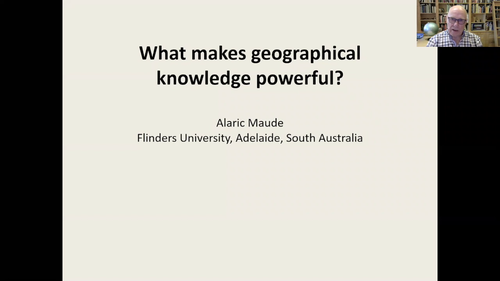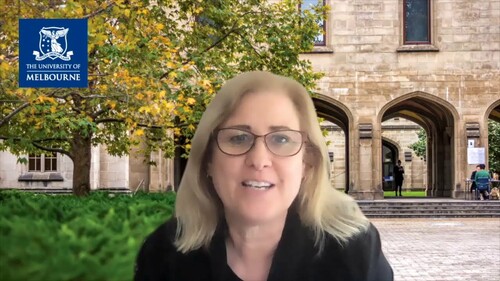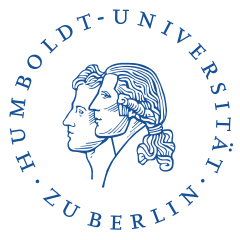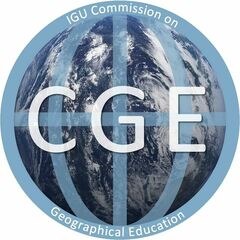Keynotes & Vignettes
To watch all videos you can use this playlist on youtube.
Alaric Maude
What makes geographical knowledge powerful?

Alaric Maude is a retired Associate Professor of Geography at Flinders University from 2000 to 2004. Among his extensive contributions to geography, Alaric has played a pivotal role in devising, monitoring, and implementing the Australian curriculum in geography. Alaric has recently published a series of articles on ‘powerful’ knowledge and its relevance to geography. These articles focus on ways of thinking and communicating. He concludes ‘the concept of powerful knowledge provides a way to communicate geography to non-geographers […] demonstrating that these ways of thinking and understanding are both educationally valuable and not taught in any other subject’.
Michael Solem
Powerful Geography

Dr. Michael Solem is Professor of Geography at Texas State University and the AAG’s Senior Adviser for Geography Education and Co-Director of the National Center for Research in Geography Education. His publications include articles in the Annals of the Association of American Geographers, The Professional Geographer, Research in Higher Education, Education About Asia, The Geography Teacher, the Journal of Geography in Higher Education, and the edited books Aspiring Academics, Teaching College Geography, Practicing Geography, and Learning Progressions for Maps, Geospatial Technology and Spatial Thinking: A Research Handbook. He is the 2015 recipient of the AAG Gilbert Grosvenor Honors in Geographic Education.
Péter Bagoly-Simó & Sally Windsor
Knowledge Matters!
Reflections on the Role of Knowledge in Standard-Based and Competencies-Oriented Formal Education

Prof. Péter Bagoly-Simó is a full professor and chair of Geography Education at the Institute of Geography, Humboldt-Universität zu Berlin, Germany. Péter has been training Geography teachers since 2004 in Germany, Romania, Italy, and Mexico. He also worked as a secondary school Geography teacher. Recently, Péter’s research focused on the role of knowledge in Geography, textbooks and educational media, and ESD. His works follow a contrastive and comparative approach at different scales.
Dr. Sally Windsor is a senior lecturer in sustainability and international education at the Department of Pedagogical, Curricular and Professional studies, Gothenburg University, Sweden. Before becoming a teacher educator she taught Geography, Humanities and Sustainability in schools in both Australia and Sweden. Currently she teaches in two international Master of Education programs, one in Education for Sustainable Development (MESD) and the other in Educational research where she holds the responsibility for oversight of ‘social sustainability’ content in both programs. Her research interests include understanding how teachers of all subject areas can embrace teaching about sustainability.
Margaret Roberts
Why is powerful knowledge not enough?
The power depends on powerful pedagogy.

Margaret Roberts’ career was grounded by teaching comprehensive schools in London, Leicestershire and Sheffield before moving to Sheffield University’s Division of Education where she was responsible for the training of geography teachers for over 20 years. During this time, she carried out extensive research into the national curriculum and enquiry learning. Since her retirement in 2006 Margaret has been President of the Geographical Association (2008–09), edited the journal Teaching Geography and in 2011 ran ten workshops on 'Geographical Inquiry' for geography teachers in Singapore. Her most influential book, Geography Through Enquiry, was published by the Geographical Association in 2013.
Johan Muller
Powerful knowledge
Its Context and Prospects

Professor Johan Muller is emeritus professor of education and senior research scholar at the University of Cape Town; visiting professor at University College London; and extraordinary professor at the Centre for CREST.
Jeana Kriewaldt & Shu Jun Lee
Educating Future Teachers of the Planet
ESD and Teacher Education

Jeana Kriewaldt is a Senior Lecturer in the Graduate School of Education at the University of Melbourne. She has a strong applied background as a classroom teacher and school leader. Researching in teacher education, Jeana research focuses on how teachers learn across the career span. This work seeks to influence policy by theorising what are the important foundations for teacher development today, drawing in human and planetary equity dimensions. She recently co-edited Place and Time: Explorations in Teaching Geography and History. With foundational expertise in geography and sustainability education, she brings distinctive knowledge and insights to make significant contribution to teacher professional development as a means for conceptualising how teachers continue to improve their practice.
Shu Jun Lee is a PhD student and part-time research assistant in the Graduate School of Education at the University of Melbourne. Her main research interest centres on teachers’ knowledge and beliefs for teaching through inquiry in geography. She is also interested in sustainability education and literacy pedagogies. She draws from her extensive experience as a humanities teacher and curriculum leader in Singapore.
Elizabeth Rushton & Helen Walkington
Giving students power over their own geographical knowledge
Mentoring school student research as a ‘high impact’ practice

Kim Hyunjin
Where should we make a garbage disposal plant?
Location of NIMBY (Not In My Backyard) facilities with geographical thinking and perspective

Susan Caldis
The importance of place and learning to learn from Country
Building powerful knowledge for better ecologically sustainable development (ESD) in teacher training


Registration
a cooperation between
Icons by fontawesome (CC BY 4.0 License); modified











